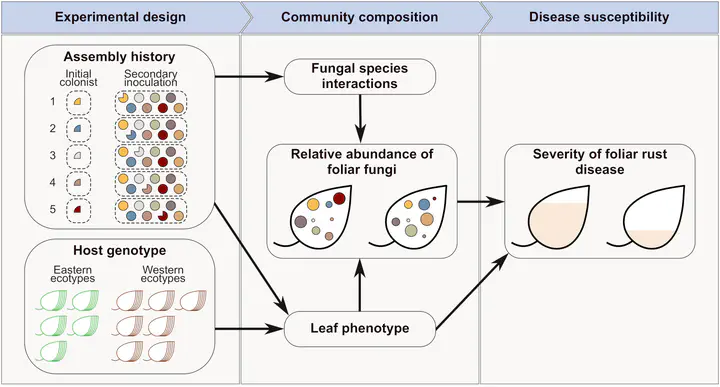Host Genotype and Colonist Arrival Order Jointly Govern Plant Microbiome Composition and Function

Abstract
The composition of host-associated microbiomes can have important consequences for host health and fitness. Yet we still lack understanding of many fundamental processes that determine microbiome composition. There is mounting evidence that historical contingency during microbiome assembly may overshadow more deterministic processes, such as the selective filters imposed by host traits. More specifically, species arrival order has been frequently shown to affect microbiome composition, a phenomenon known as priority effects. However, it is less clear whether priority effects during micro- biome assembly are consequential for the host or whether intraspecific variation in host traits can alter the trajectory of microbiome assembly under priority effects. In a greenhouse inoculation experiment using the black cottonwood (Populus trichocarpa) foliar microbiome, we manipulated host genotype and the coloniza- tion order of common foliar fungi. We quantified microbiome assembly outcomes using fungal marker gene sequencing and measured susceptibility of the colonized host to a leaf rust pathogen, Melampsora × columbiana. We found that the effect of species arrival order on microbiome composition, and subsequent disease susceptibility, depended on the host genotype. Additionally, we found that microbiome assembly history can affect host disease susceptibility independent of microbiome composition at the time of pathogen exposure, suggesting that the interactive effects of species arrival order and host genotype can decouple community composition and function. Overall, these results highlight the importance of a key process underlying stochas- ticity in microbiome assembly while also revealing which hosts are most likely to experience these effects.